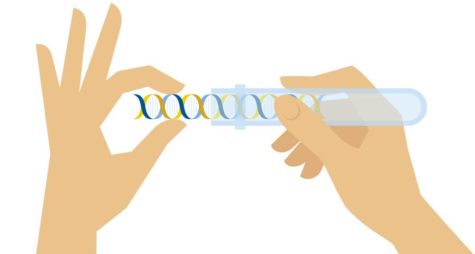Does Junk DNA Have a Purpose?

DNA molecule
DNA is one of the most important parts of our body which keeps our body running. DNA carries genetic information which helps our body develop and function, thus making us “human”. Additionally, DNA creates proteins which help keep our body running. However, nearly 98% of all DNA in our body is considered “Junk DNA”.
What is Junk DNA?
All humans have cells in their bodies containing DNA. DNA has many purposes, and contains the material which defines who we are as human beings. One of their purposes is containing instructions on how to develop proteins in the cells. The amount of DNA within every specimen differs. However, the majority of the DNA in our body is considered non-coding, or junk DNA. This means that they do not make proteins for our body. Most people used to believe that junk DNA does not have any purpose whatsoever.
However, over the years, many people began to believe that junk DNA may have a purpose after all. Scientists believe that junk DNA may have a purpose, which is to bunch the DNA into chromosomes, and also to regulate when and where certain genes should turn on and off.
Does Junk DNA Help Survival within Mammals?
One component of junk DNA, known as transposons, is believed to have a role in survival within mammals. Transposons are sequences of DNA which can move from one part of the genome to another. Additionally, transposons have the ability to invade host genomes. A study led by researchers at the University of Berkeley and Washington University suggests that junk DNA may play a role in survival within mammals. During this study, researchers received several unborn mice, and they eliminated certain transposons within these mice. This specific transposon is what regulates the reproduction of cells within these fertilized embryos (this process is known as proliferation). The researchers found that more than half of the mice that didn’t have this transposon died before birth.
How Can Junk DNA Help with Fertility?
Similar to how transposons play a role in the viability of mice, transposons may play a role in the life and development of humans as well. After the researchers at UC Berkeley conducted this study with mice, they looked at other mammalian species, including humans. The researchers discovered that, “ virus-derived regulatory elements linked to cell proliferation and timing of embryo implantation, suggesting that ancient viral DNA has been domesticated independently to play a crucial role in early embryonic development in all mammals.” This indicates that junk DNA has an important role within the development and survival of the human embryo. This also may give us more of an understanding behind why miscarriages occur, as many miscarriages are due to unknown reasons involving genetic components.
What does this mean for the future?
This study done by researchers at UC Berkeley and University of Washington shows that junk DNA may have a purpose regarding mammalian survival. This is important because before, junk DNA was thought to have no purpose. Now, we understand that there is a use for junk DNA, and we also understand more behind how mammalian development works, and how it can help our survival. Furthermore, as more studies are done, maybe we can get a stronger understanding on how to reduce or even prevent miscarriages from happening. We also may be able to learn how to even edit the process of human development to create babies with resistance to certain diseases.
Written by: Zahra Ghadeer













